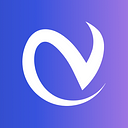Building a strong resume starts with basics: Good English without Grammar errors, plus some tips are below:
- Create MS Word (.DOC, or .DOCX) document, instead of PDF, you can create Word document for free at Access files anywhere. Create docs with free Office Online.
- Word document is a must as most look for it.
- PDF can be an additional one.
- Do a spell check in Word for above. Use the menu (Review > Spelling & Grammar) in above link.
- Make the names in the resume to capitals, like IBM, etc.
- Avoid multiple letters in succession: multiple commas, multiple spaces, one after the other.
- One space after every comma, full stop, etc.
- This will help no red & grey lines on the resume, which is a distraction while reading the resume.
- Don’t overemphasize too many things: like in bold and underlined, Unnecessary Capitalization in the middle of the sentences. Like I did just now.
- If there is a lot of data, use Tables or Bullets (like I am doing now), instead of one big essay. Especially achievements, schooling, etc.
- Skills section: Write all your skills even if you think something like knowing MS Word is not a great one. When the number of skills you have is less, then adding trivial will help.
- If you categorize then even better, like, Databases: MySQL 1.9, MS SQL 2.9, ORACLE 3.9. Yes, the version numbers are important.
- Write any community services you are doing.
- If you are in software development, then writing that you used some design patterns in the code will help. Knowing is a lot less than using them practically.
- Putting all e-contacts in one place is better. The name can be followed by email, linkedin profile, website and mobile number at the end. These all can be in the header, at the top of the resume.
- Each project should have a number, name, role, responsibilities & skills. Most recent one should be at the top.
- Some fonts are good for web/screen and some are good for print. Some good for both. Quora uses a good font for web/screen.
- Google question & answer gave:
- Q: What is the best font to read on screen?
- A: “Verdana and Georgia. Microsoft hired noted type designer Matthew Carter to design serif and sans serif families, especially for the screen. The results are perhaps the two easiest-to-read fonts you have seen on your screen. They’ve both available for free download.”
- Seminars, presentations, meetup you attended can be good if they are relevant to the job you are applying for.
- Hobbies and extracurricular activities could be a one-liner, it depends if this is important for the employer it can be elaborated.
- The cover letter along with resume will help if you wrote it genuinely.
- Both resume and cover letter should be short. Say, 3-page resume, 1-page cover letter. These should be separate DOC files.
- More recently, I attended a big tech company, here is what I felt:
- All interviewers ask what you write in the resume, in-depth
- They want to know what exactly you did in the project
- If you did, or someone else in your team did that work but you have put it as if you did it.
- Make sure, you know what you are writing, carefully read each sentence, because once they know you lied, you may not march to next rounds, because the basic trust, on which discussion is going on, is gone.
- More questions will be asked in the most recent achievements/ projects.
- This is because, you cannot skip the question with “I did that long back, so I don’t remember a lot of details.”
- Why you changed the companies, very soon, like every 1 year, for example.
- In other words, they want to know if you after getting trained for 6 months, will you leave in 6 months after that? If so, they would hire someone who stays for a long time.
- Why did you quit your earlier job won’t be there on the resume, so the interviewer’s obvious question will be:
- What is the reason you left the previous X company?
- If a more experienced person takes the interview, especially the last rounds, they would ask the above question for each company.
- Changing resume to suit a job, won’t get you a job.
- Just write what you did.
- 95% good in skill X, but only 5% good in Y profile, won’t work for the requirement of 80% good Y job, it won’t matter if you change the resume.
- For example, changing resume (a bit of falsification) just to get into eyes of Recruiter won’t help further, in the 1st round, they will know you don’t match the requirement, then it would be both yours and interviewers waste of time.
- Your interest vs Company’s interest:
- In general, your interests matter very less for a small company — they think like: we have a requirement for skill X & Y, are you at least 70% match for both skill X & Y? because we need to deliver soon in 3 months from now (you will join us after 2 months, that means, you need to complete in 1 month after you join).
- But for a big company, your interests matter most — they think like: Are there some common skills you have that we work on? If so, of them, do you know at least 1 skill in-depth? how many more skills do you know at least 20%? We do have a variety of projects in skills P, Q, R, S .. Z, what skills do you want to work on? (Rafael Nadal can’t play like Roger Federer on grass, and viceversa on clay court)
